By Tom Anderson & Therezia Cooper
On February 9th a coalition of civil society groups has called for an international day of action against Israeli agricultural companies in line with the movement for boycott, divestment and sanctions against Israeli militarism, apartheid and colonisation. Corporate Occupation/Corporate Watch researchers are in Palestine collecting new information and over the coming weeks Corporate Watch will be writing a series of articles and blogs examining Israeli agricultural exports.
In January 2013 Corporate Watch obtained labels for Morrisons own brand Medjoul dates from the Israeli settlement of Tomer in the occupied Jordan Valley. The labels were for produce with an expiry date in December 2012 and the store has confirmed that they were produced for dates exported during the last Ramadan season. The exporter was the Israeli date growers cooperative Hadiklaim (see here).
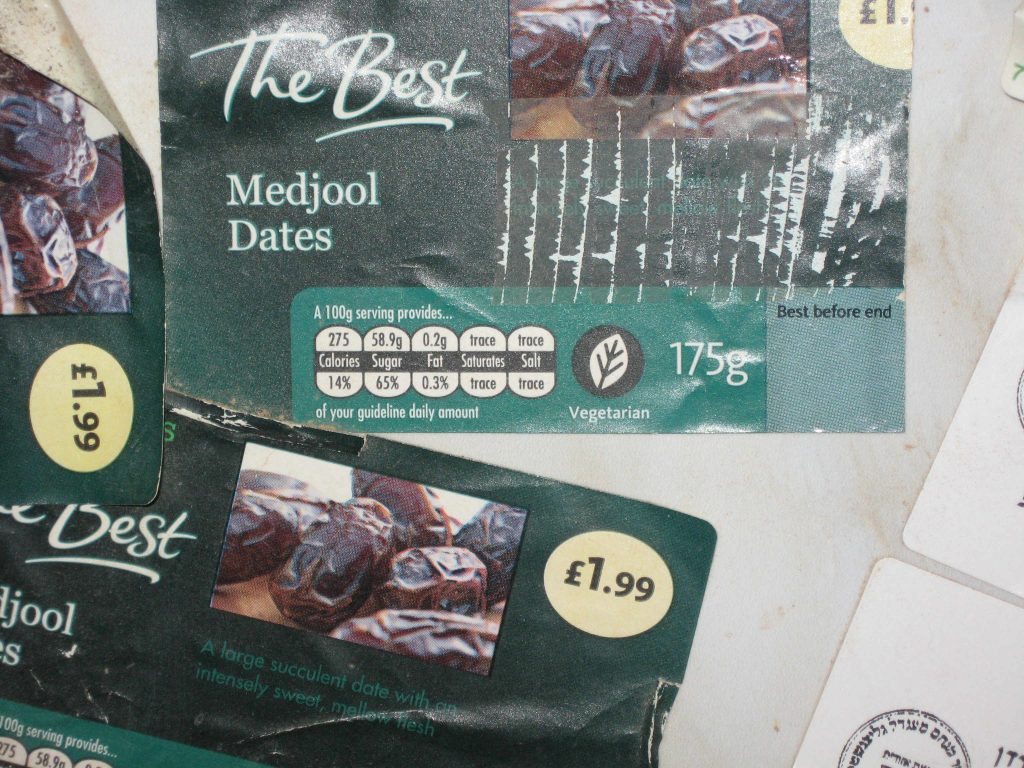
Labels manufactured for packaging Morrisons own brand Medjoul dates found in the illegal Israeli settlement of Tomer
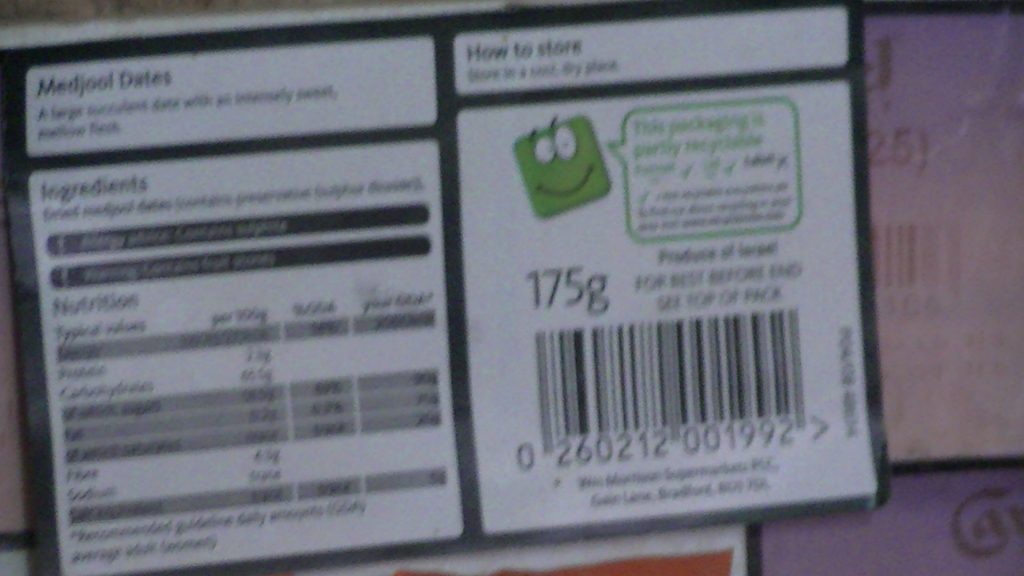
The reverse side of the labels manufactured for packaging Morrisons own brand Medjoul dates found in the illegal Israeli settlement of Tomer
There is a well documented history of packing houses in Tomer mislabelling produce destined for the UK market. In 2007 the Brighton Jordan Valley Solidarity Group found mislabelled produce packaged for Tesco in the settlement and in 2010, and again in 2013, Corporate Watch revealed that EDOM, a partly British owned agricultural export company, has been exporting produce labelled ‘Produce of Israel’ from there.
When confronted with the evidence of Morrisons products being prepared for export in an illegal settlement, the store’s Media Relations officer claimed that the chain “does not source goods from the Occupied Palestinian territories”. In an email to campaigners dated the 23rd of January 2013 he reiterated this statement and, when questioned about whether produce sourced from the West Bank was labelled as such in accordance with the DEFRA guidelines, he added
“Any products sourced from Israel are carefully checked to ensure the integrity of origin declarations. We perform random traceability checks to give our customers confidence that food labelled ‘produce of Israel’ has not been grown in the West Bank.”
After further investigation Morrisons issued a statement about the Corporate Watch findings:
“We do not source any products from the Occupied Palestinian Territories, including the West Bank. The Medjool dates in question are grown in and sourced from Israel and always have been. Exceptionally, these dates were packed in Tomer while an alternative site was found and although the information on the label was legally correct we recognise it was not in the spirit of the country of origin claim. Since this time our Medjool dates have been packed, as well and grown and sourced, in the state of Israel.”
However, the source for this information appears to be Hadiklaim’s own tracing system, as confirmed in a second statement, issued after some further questions:
“Our supplier has full traceability of these dates, allowing them to follow each individual batch back to the grower who supplied them using packing and season codes, along with traceability numbers. The dates were packed in Tomer until July of last year, while a more suitable site was found. The product is now packed at three sites in Israel.”
The explanation that the dates were grown in Israel and packed in Tomer appears implausible. According to Hadiklaim’s own website the company has several packing houses inside Israel, it seems unlikely that the company would drive dates grown in Israel into occupied territory for packaging. However, even if this was the case it would put them in no better light, as the company would have deliberately chosen to use the services of an illegal settlement, hence aiding the settler economy.
Hadiklaim does, of course, deal with many growers in the settlements. Corporate Watch has previously spotted Hadiklaim signage in the illegal Jordan Valley settlements of both Tomer and Beit Ha’arava while Who Profits? reports that the company deals with growers in the settlement of Hamra.
The store’s statement does not answer the questions put to Morrisons regarding the locations of the packing houses inside Israel, nor does it confirm whether the supermarkets have access to the traceability system independently of Hadiklaim. Corporate Watch’s questions about the exact location, which should be easily provided by this system, have as yet gone unanswered.
Morrisons has stated that it plans to continue trading with Hadiklaim. It is imperative that the boycott movement takes action to pressure Morrisons to rethink this decision.
Israeli companies routinely export produce from settlements in the West Bank as ‘Produce of Israel’, as constantly documented on this site and elsewhere. Every time that a link is found between a UK supermarket or retailer and a settlement in the West Bank the respondents always claim that these connections are due to some exceptional, unfortunate and temporary circumstances, which are somehow never picked up by any traceability systems. This excuse has begun to ring hollow.
If supermarkets such as Morrisons want to be taken seriously when they state that they don’t source produce from the West Bank they will, as a minimum, have to end trade with any company which operate in the settlements, regardless of whether the produce supplied to their chain is sourced from there or not. This policy was adopted by the The Co-operative, the fifth largest food retailer in the UK, in May last year after campaigners presented them with evidence that the companies it dealt with were working with settlement growers. If supermarkets refuse to take this measure they will leave themselves open to deception by unscrupulous Israeli companies which are determined to continue their business with growers in Israel’s illegal settlements.
Of course, the international solidarity movement must not give up until supermarkets and retailers heed the call from Palestinian civil society for a boycott of all Israeli products until Israel ends its occupation, ends the siege of Gaza and complies with international law.
On the 28th of January 2013 another major BDS victory was announced when BDS Movement South Africa and Palestine Solidarity Alliance issued a press statement announcing that Karsten Farms, a leading South African agricultural company, has severed its trade relations with Hadiklaim. Campaigners have been trying to persuade Karsten to end its relationship with the Israeli cooperative for the last three years.
Corporate Watch has requested a meeting with Morrisons to discuss these issues further and we are currently awaiting a response.
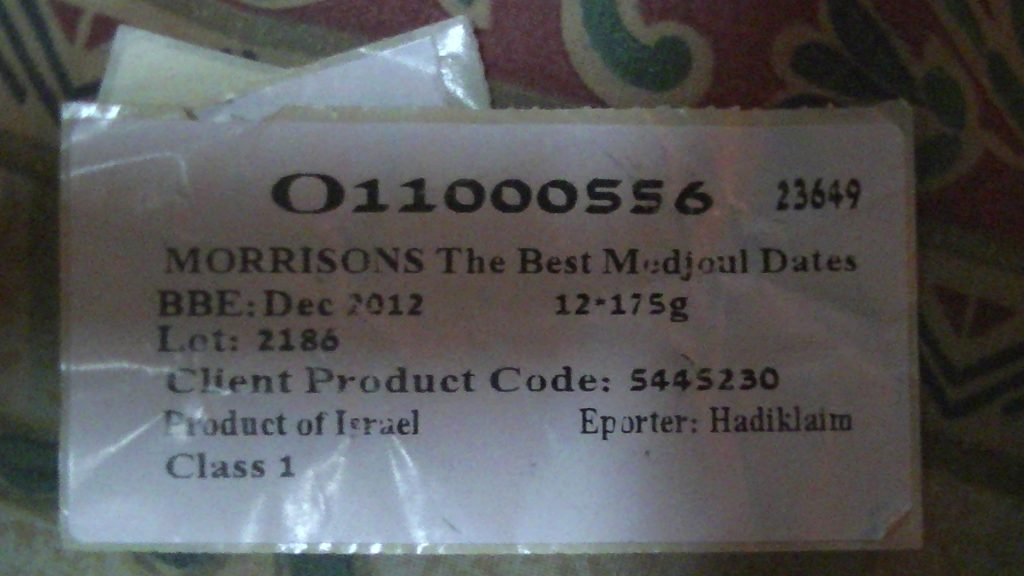
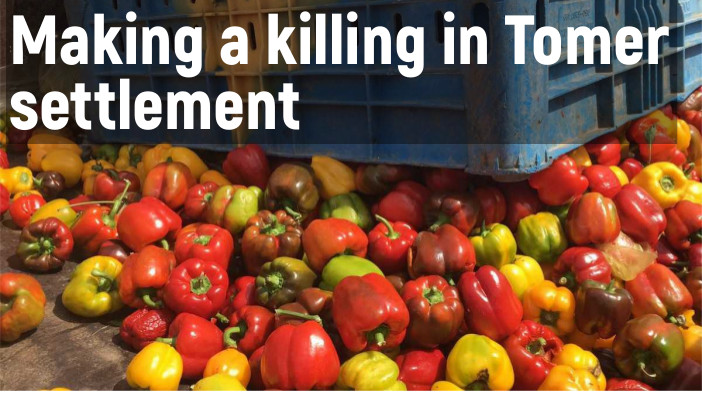
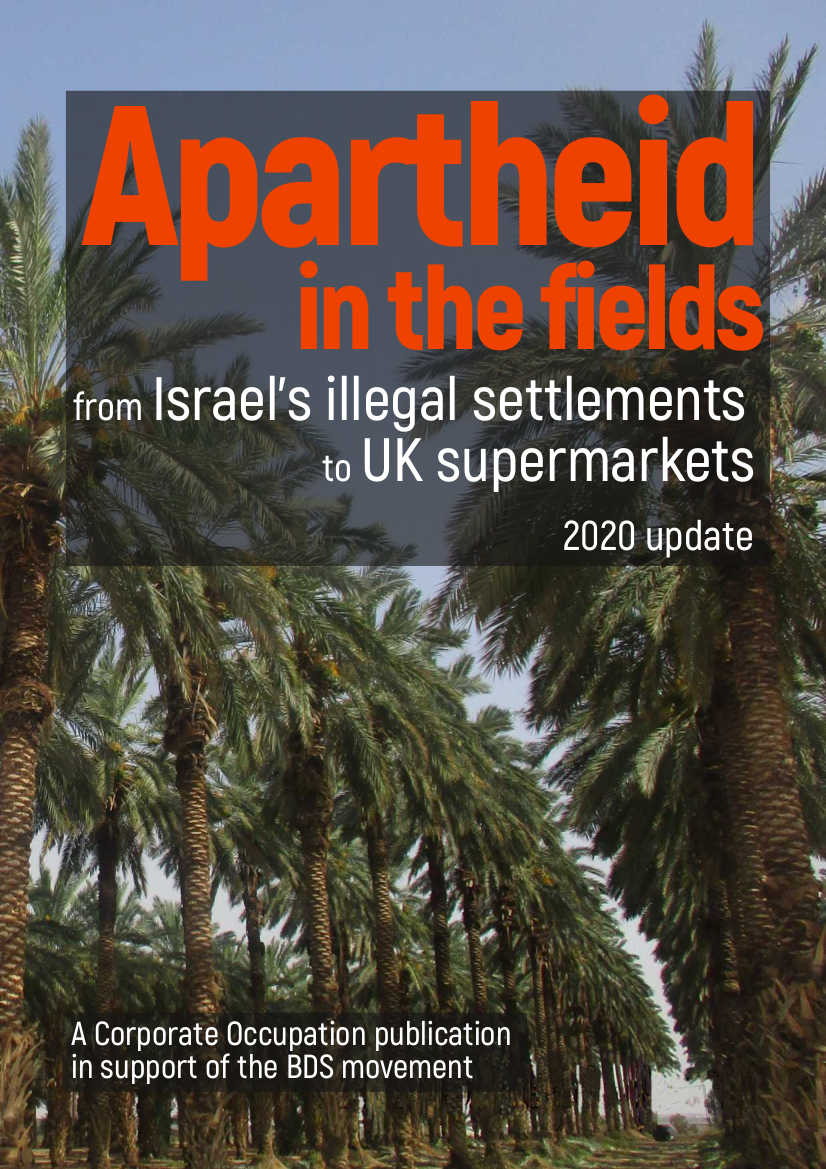
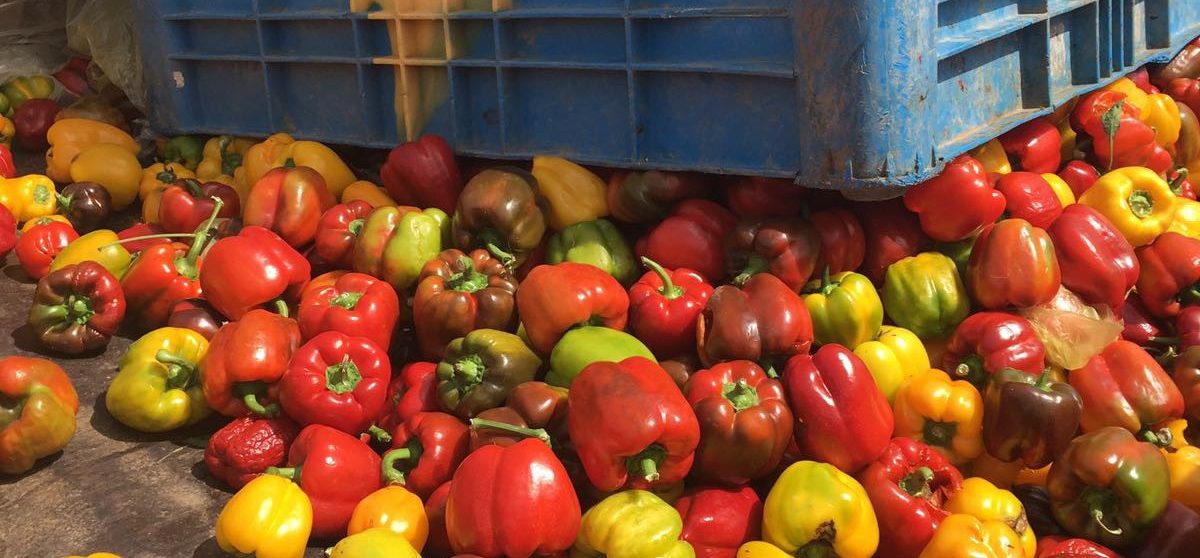
4 Comments
BDS Victory: EDOM’s Chairman promises to resign and divest shares | Corporate Watch · 8th February 2013 at 5:20 pm
[…] EDOM: Still sourcing products from Tomer settlement […]
Sebastiya: how Palestine’s trees are being poisoned | Ceasefire Magazine · 17th February 2013 at 10:27 pm
[…] labelled ‘produce of Israel’. Retailers Tesco and Argos, and recently Sainsburys and Morrisons, have all been implicated in this […]
Palestine Solidarity Campaign Complain to Trading Standards! | Palestine Solidarity Campaign · 23rd May 2013 at 9:43 am
[…] All of the major supermarket chains, including Morrison’s, signed up to this new labelling regime. Since then, many – including Morrison’s – have declared they no longer import from settlements in occupied Palestinian territory. Complaint about Morrison’s In January 2013 Corporate Watch obtained labels for Morrisons own brand Medjoul dates from the Israeli settlement of Tomer in the occupied Jordan Valley. The labels were for produce with an expiry date in December 2013 and the store has confirmed that they were produced for dates exported during the last Ramadan season. Full information about this investigation is https://corporateoccupation.org/mislabelled-morrisons-own-brand-packaging-found-in-illegal-israeli-se… […]
Targeting Corporate Complicity in Israeli Apartheid: Some ideas for Action | Corporate Watch · 28th June 2013 at 4:49 pm
[…] January we exposed Morrisons’ continued sourcing from the settlements. Contact Morrisons and challenge them on the origin of their produce and ask them to stop trading with settlement […]